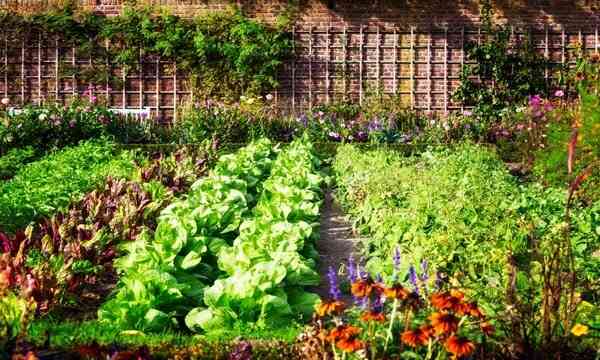Tips for Successful Vegetable Gardening
Vegetable planting has of late become similarly as famous as going to the supermarket for produce.
Vegetable cultivating can create vegetables that are generally less expensive than locally acquired, and vegetables from a home vegetable nursery taste superior by a wide margin.
Vegetable cultivating is the same as developing spices or blossoms. If the appropriate advances are taken and the plants are given legitimate consideration they will prosper and create extremely delectable vegetables.
To start with, you should conclude what size of nursery you wish to plant and afterwards select a spot for it; someplace that has great waste, great wind current, and great, profound soil.
It likewise should have the option to get however much daylight as could reasonably be expected.
Since vegetable nurseries have such delicious prizes, numerous creatures, like canines, hares, deer, and numerous others will attempt to get to your veggies.
One method for forestalling this is encompassing your nursery with a fence or putting out a snare to get mice, moles, and different creatures.
Before planting, the dirt should be appropriately ready.
Great soil for vegetable planting is accomplished by the development and utilization of natural materials.
The dirt should be ploughed (furrowed) to control weeds and blend mulch into the dirt.
Assuming you have a little nursery, spading could be a preferred wager over furrowing.
Mulching is additionally a crucial piece of soil arrangement.
Natural matter added to the dirt delivers nitrogen, minerals, and different supplements plants need to flourish.
The most famous and best kind of mulch you can utilize is manure.
While the sort and measure of compost used to rely upon the dirt and kinds of plants, a few plants have explicit necessities; verdant plants, similar to cabbage, spinach, and lettuce as a rule develop better with more nitrogen, while root crops like potatoes, beets, turnips, and carrots require more potash.
Tomatoes and beans utilize less compost, while plants like onions, celery, and potatoes need a bigger sum.
One thing that is imperatively significant in vegetable cultivation is the nursery game plan.
There is no single arrangement that will work for each nursery because of differing conditions.
One famous method for organizing a vegetable nursery is to establish vegetables requiring just restricted space together, like radishes, lettuce, beets, and spinach, and those that require more space together, like corn, pumpkins, and potatoes.
Attempt and plant tall developing plants towards the rear of the nursery and more limited ones in the front so their daylight doesn't get obstructed.
Whenever you are at long last prepared to start establishing your vegetable nursery, ensure and plant with the perfect timing of the year.
On the off chance that you are kicking the bucket to start bright and early, you might need to start your nursery inside in a hotbed and afterwards relocate when the weather conditions grant.
After you are done planting, ensure your vegetables get the fitting measure of water, which relies upon the sort of plant.
Most plants will require what might be compared to about an inch of water each week.
Weeds should be controlled in vegetable planting since they will take up water, light, and supplements implied for the vegetables and they frequently carry sickness and bugs to the nursery.
You can dispose of weeds by development or mulching.
To safeguard against sickness and bugs you can purchase seeds that are infection safe or utilize controlled synthetic compounds.
Vegetable planting is many individuals' number one type of cultivation because you can taste your rewards for all the hard work.
Vegetable planting isn't that costly to begin and the flavour of local veggies beats that of stored vegetables.
Your vegetable cultivating days will be loaded with produce on the off chance that you avoid potential risk while planting and proceed with the upkeep of your nursery.

